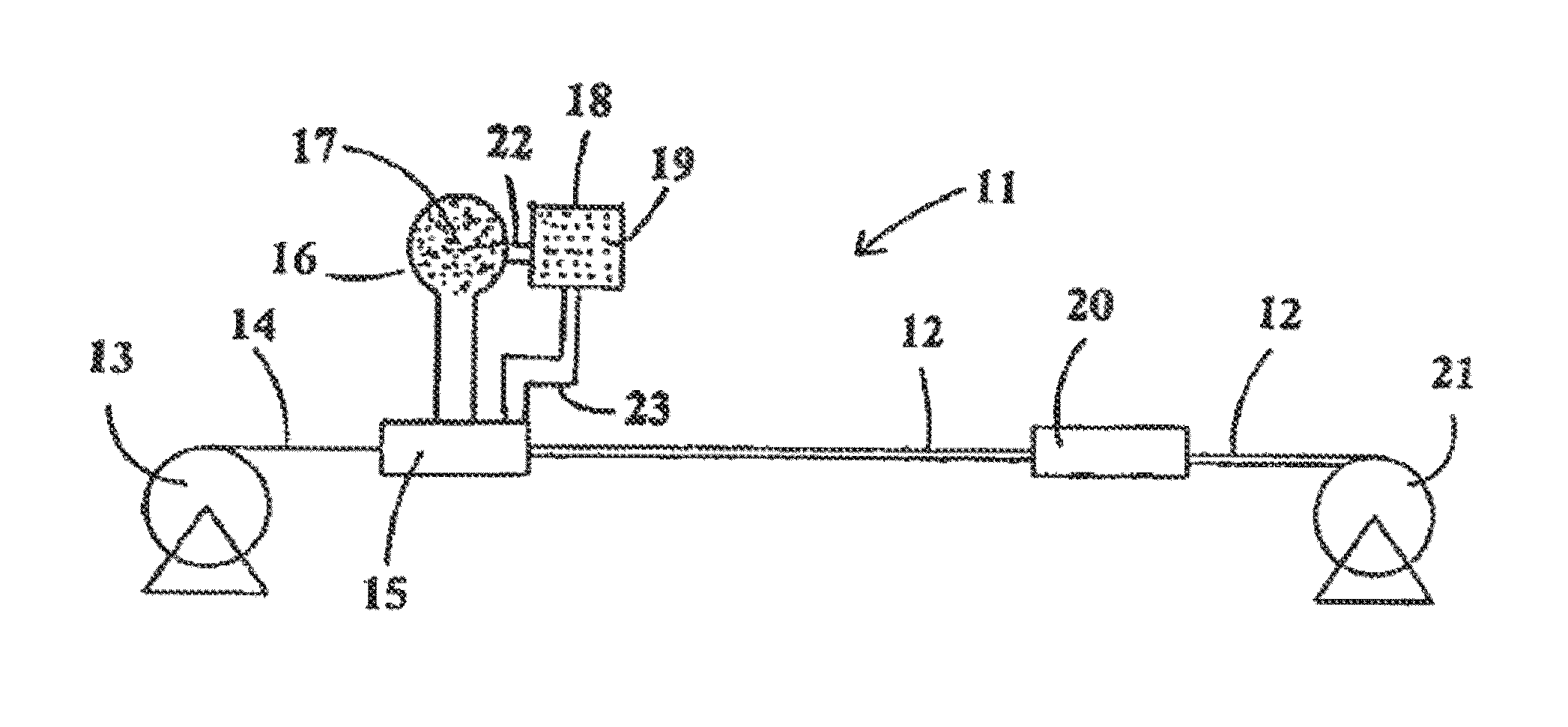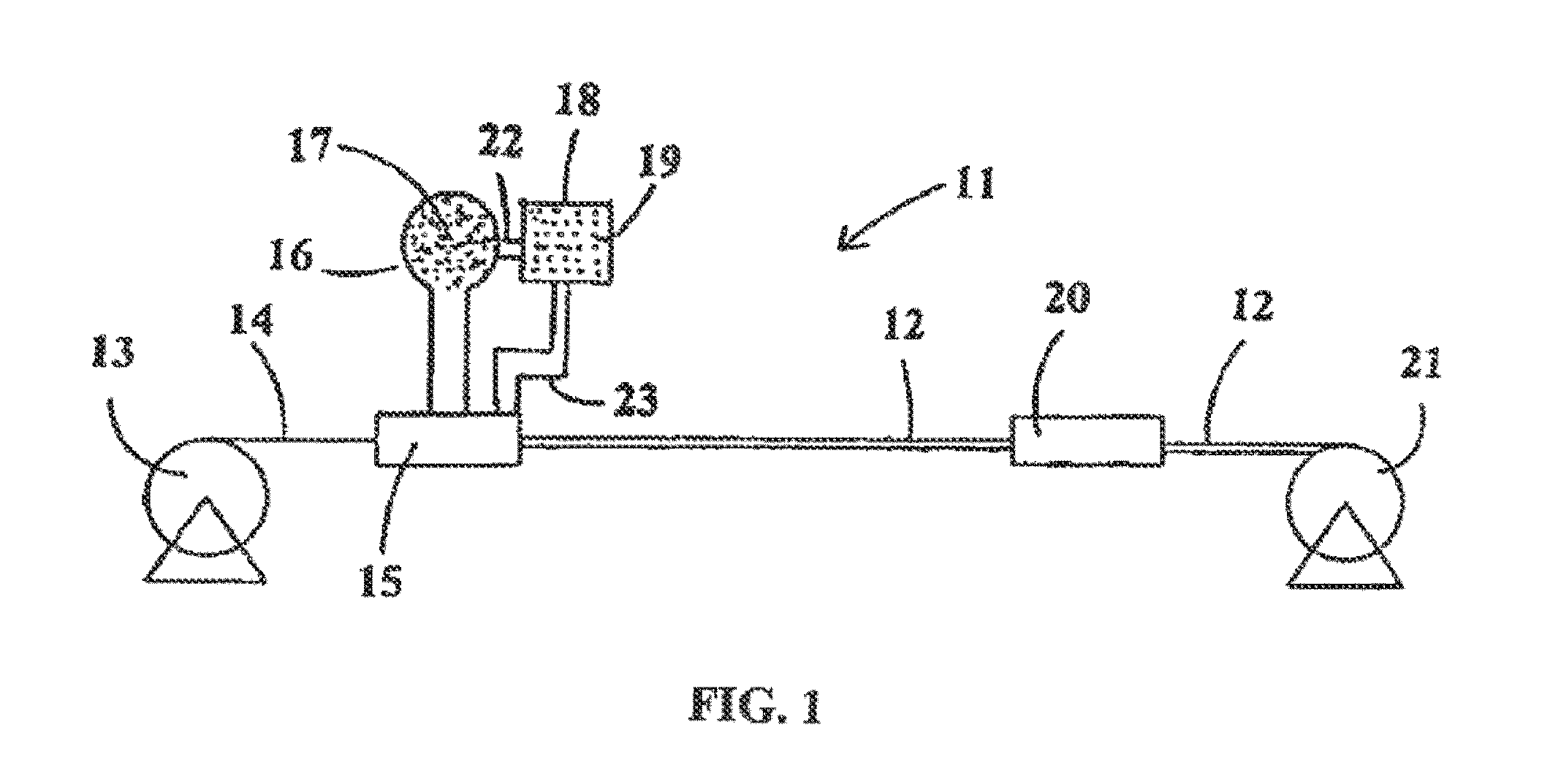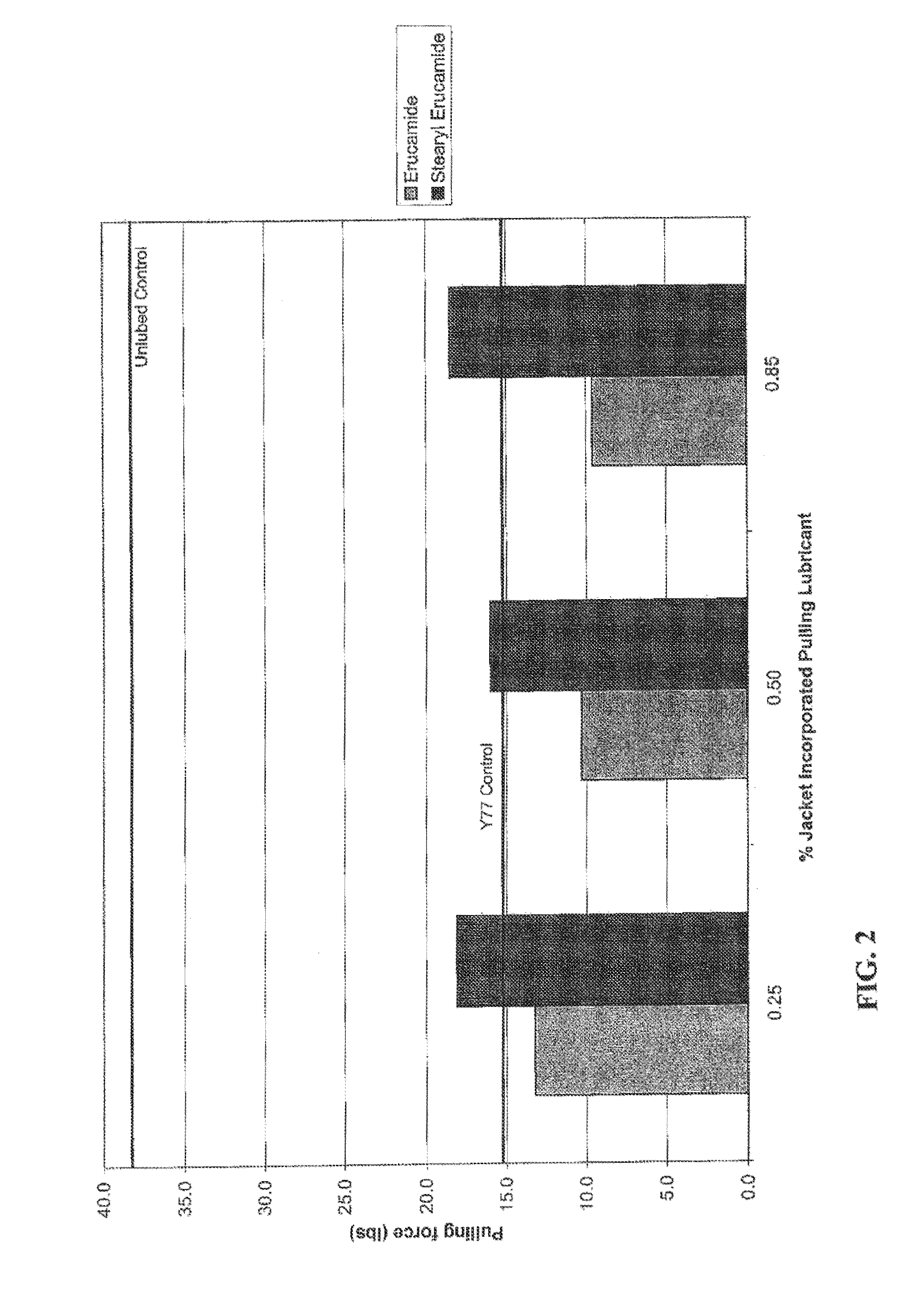Method of manufacturing electrical cable, and resulting product, with reduced required installation pulling force
a technology of electrical cables and pulling force, applied in the direction of cables, insulated conductors/cables, insulation conductors, etc., can solve the problems of requiring a large pulling force, physical damage, degradation of cables, etc., and achieve the effect of reducing the friction coefficient of the exterior sheath surface, reducing the surface friction coefficient, and reducing the required installation pulling for
- Summary
- Abstract
- Description
- Claims
- Application Information
AI Technical Summary
Benefits of technology
Problems solved by technology
Method used
Image
Examples
Embodiment Construction
[0017]Referring initially to FIG. 1, there is depicted typical equipment 11 for manufacturing electrical cable 12 in accordance with one process of the present invention. The outer sheath of the cable is of an extruded polymer material, specifically nylon. The equipment 11 may include a reel 13 which supplies conductor wire 14 to an extruding head 15. In flow communication with the extrusion head is a tank 16 of the nylon pellets 17. A tank 18 with the desired pulling lubricant 19 is adapted to be in flow communication with the tank 16 by way of conduit 22, thus enabling the mixing of the pulling lubricant with the nylon pellets 17, the mixture thereafter introduced into the extruder. Alternatively, the tank may be adapted to be in fluid communication with the extruder or extrusion head 15, by way of conduit 23, downstream from the point of entry of the nylon material, thus allowing the pulling lubricant to mix with the nylon material while in its molten state in the extruder or ext...
PUM
| Property | Measurement | Unit |
|---|---|---|
| size | aaaaa | aaaaa |
| temperatures | aaaaa | aaaaa |
| temperatures | aaaaa | aaaaa |
Abstract
Description
Claims
Application Information
 Login to View More
Login to View More - R&D
- Intellectual Property
- Life Sciences
- Materials
- Tech Scout
- Unparalleled Data Quality
- Higher Quality Content
- 60% Fewer Hallucinations
Browse by: Latest US Patents, China's latest patents, Technical Efficacy Thesaurus, Application Domain, Technology Topic, Popular Technical Reports.
© 2025 PatSnap. All rights reserved.Legal|Privacy policy|Modern Slavery Act Transparency Statement|Sitemap|About US| Contact US: help@patsnap.com



